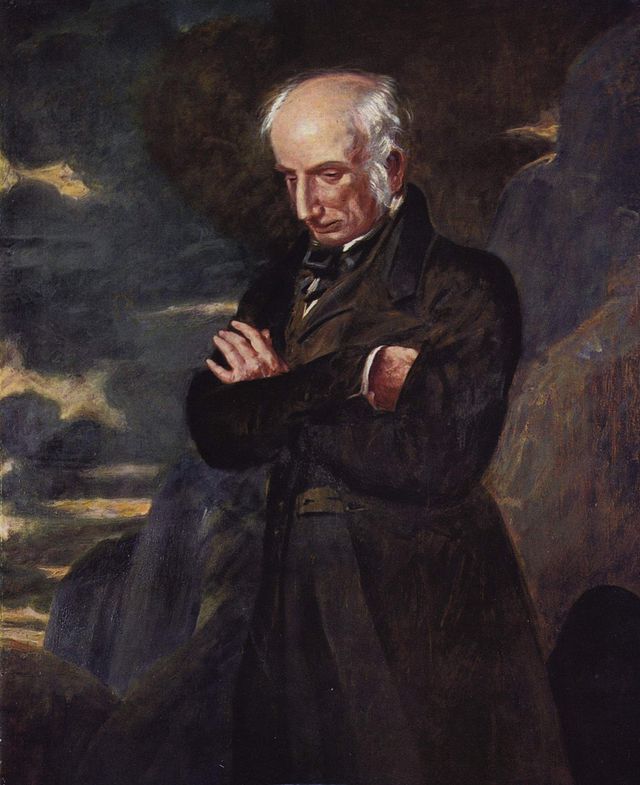Friday
Few poets have impacted the way we see the world more than William Wordsworth. In a recent Guardian article, novelist Margaret Drabble doesn’t mince words in describing his influence:
Wordsworth changed forever the way we view the natural world and the inner world of feeling. He also connected the two indivisibly. We are his heirs, and we see and feel through him. His vision illumined our landscape.
We now are so accustomed to see the world in this way that we forget that it was not always thus. Poets in the 18th century may have enjoyed a good landscape, but they didn’t then link the experience with intimate states of mind, as Wordsworth does in the concluding stanza of his beloved “I Wandered Lonely As a Cloud”:
For oft, when on my couch I lie
In vacant or in pensive mood,
They flash upon that inward eye
Which is the bliss of solitude;
And then my heart with pleasure fills,
And dances with the daffodils.
About Wordsworth’s autobiographical Prelude, which I’ve never read in its entirety, Drabble writes,
It is a work of astonishing originality, both in its subject matter (childhood and the growth of the mind, described with a pre-Freudian insight unprecedented in literature) and in its form. The verse is powerful, supple, subtle, freely flowing. Wordsworth revered both Shakespeare and Milton. His is the third great iambic voice in the English language.
I like to tackle a long poem or a series of poems for my Lenten discipline. Last year I read Milton’s Paradise Regained. I believe I have my candidate for this year.


